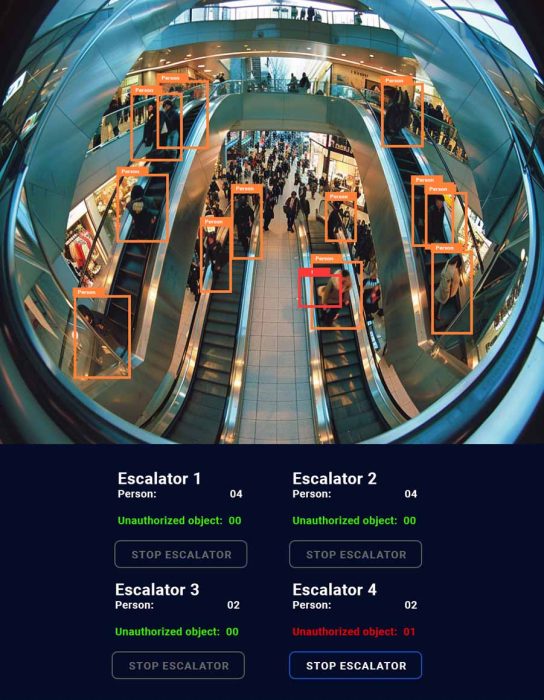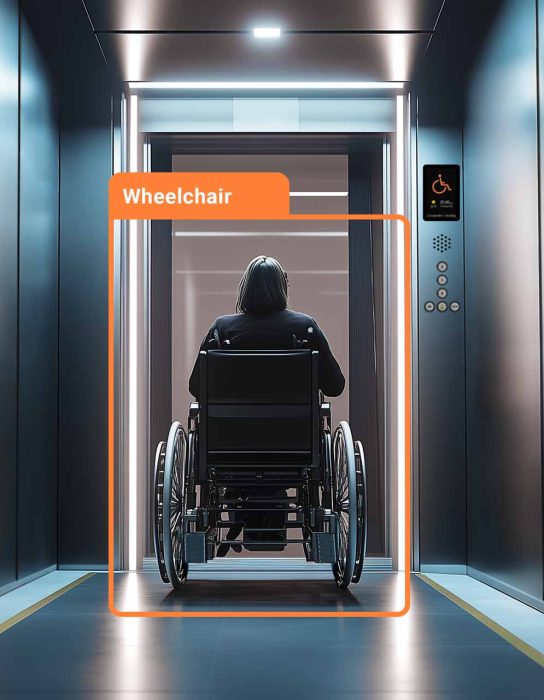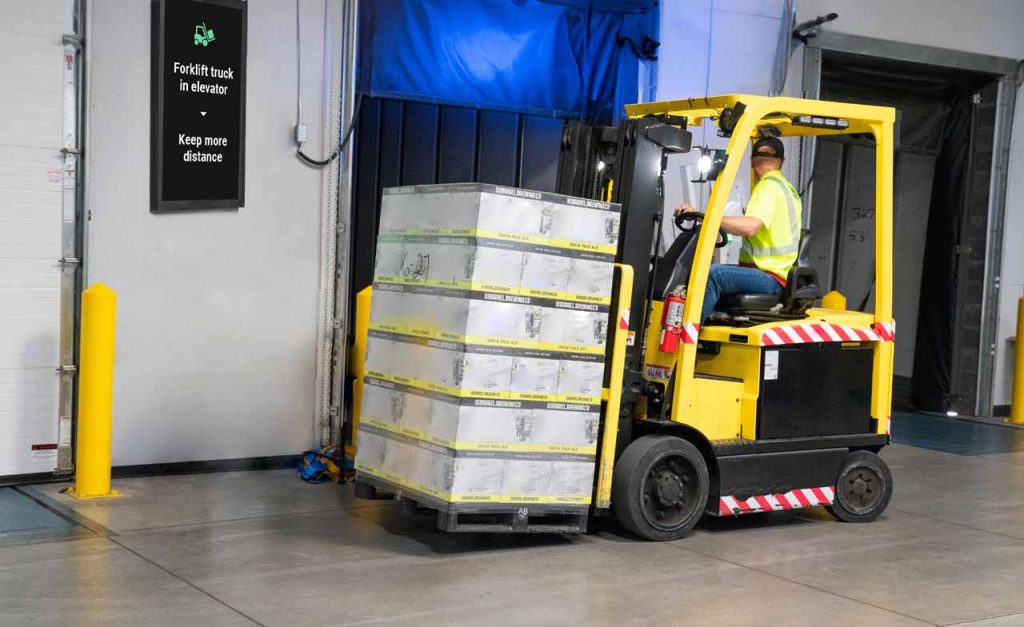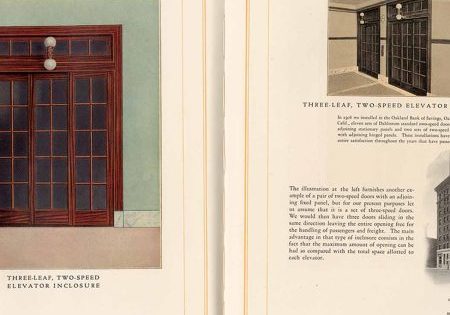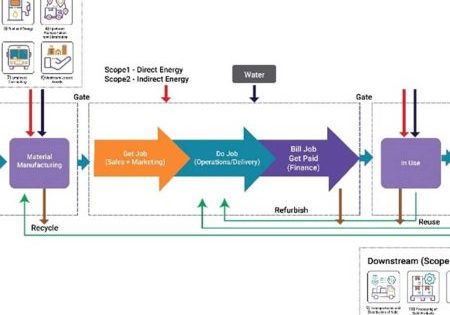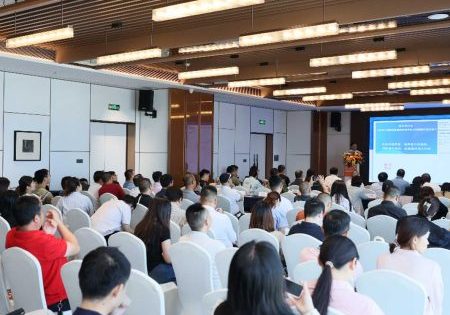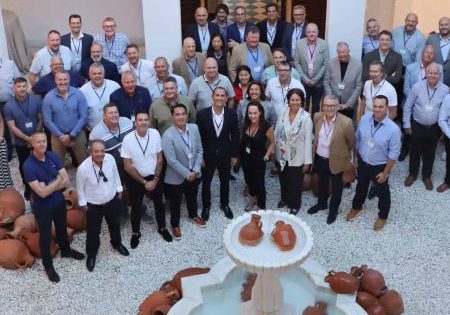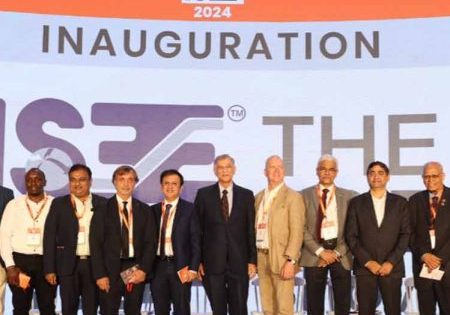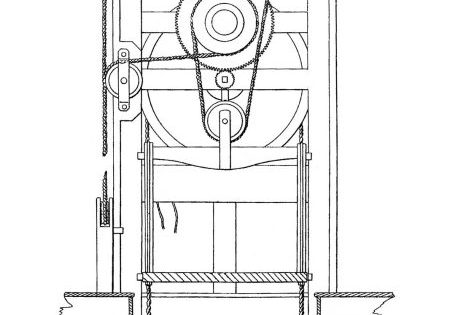AI in VT
Feb 1, 2025
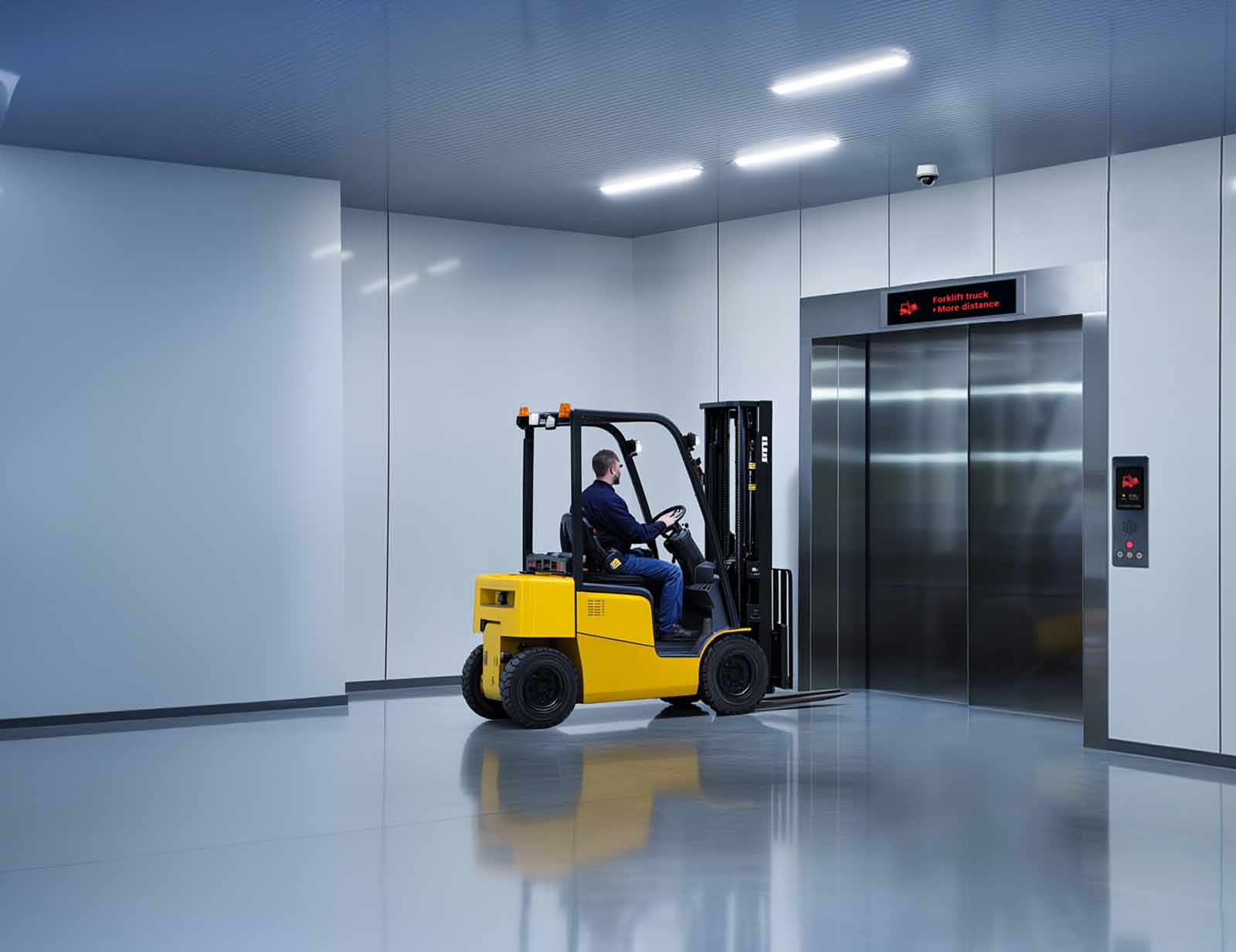
Transforming the elevator industry
submitted by ELFIN Technology
AI is redefining industries worldwide, and the vertical-transportation (VT) sector is no exception. At the forefront of this transformation is ELFIN Technology, a Germany-based company that has been shaping elevator innovation for more than a decade. Known for its expertise in Internet of Things (IoT) development, smart multimedia displays and cutting-edge sensor technologies, ELFIN Technology has emerged as a key player in integrating AI into elevators and escalators to improve safety, efficiency and inclusivity.
The Journey to AI Integration
ELFIN Technology’s origins are deeply rooted in elevator innovation. Founded by Jörg Hellmich, whose career spans more than 30 years in the elevator industry, the company has been instrumental in pioneering new technologies for VT. Early contributions included the development of CANopen-Lift standards and open-source hardware and software for the elevator industry. Leveraging a team of IoT specialists and seasoned elevator experts, ELFIN Technology has continuously pushed the boundaries of what is possible in this dynamic field.
AI became a logical progression for ELFIN Technology as it expanded its portfolio from smart displays to advanced sensors tailored to elevators. The company quickly became one of the early adopters of AI in the industry, recognizing its potential to revolutionize processes, enhance safety and enable smarter systems.
AI-Based Innovations by ELFIN Technology
ELFIN Technology’s AI applications focus on solving real-world challenges in VT. Three notable use cases illustrate the transformative potential of their solutions:
- Automated Elevator Calls: By detecting activity near elevator doors — such as a forklift approaching — ELFIN’s AI can send car calls automatically. This eliminates the need for manual button presses, streamlines workflows and reduces delays, for example, in industrial settings.
- Escalator Safety Management: ELFIN’s sensors analyze escalator utilization in real-time. If overcrowding or dangerous usage, such as a wheelchair on the escalator, is detected, the system can halt operations to prevent accidents. This technology is, for example, in use at a major German airport.
- Priority Ride Detection: For example, in healthcare environments, ELFIN’s AI can recognize objects like hospital beds inside an elevator, prioritize clinical staff rides and automatically block the elevator for visitors. This ensures efficient and secure transportation in critical scenarios. This technology is also relevant to other sectors like the hospitality industry (cleaning/laundry rides).
These examples of AI-driven applications are underpinned by ELFIN’s Computer Vision technology, which analyzes visual data in real-time to provide actionable insights. The sensors, designed for challenging elevator environments, deliver reliable performance under varying light conditions, in tight and crowded spaces and even when reflections or movement could interfere with traditional systems.
Advancing Inclusivity: The Two-Senses Emergency Call
One of ELFIN Technology’s most groundbreaking innovations is the Two-Senses Emergency Call. Recognizing the need for inclusive safety measures, this system combines visual and auditory communication, ensuring that people with hearing impairments or language barriers can interact with emergency systems effectively. The solution integrates a real-time sign language avatar, enabling bidirectional communication in elevators via smart multimedia displays.
This development aligns with regulatory efforts led by the European Lift Association (ELA) to make the Two-Senses Emergency Call a standard across Europe. Already mandatory in the U.S. and included in Germany’s DIN EN 17210 standard for public accessibility, this technology represents a significant leap forward in inclusive VT.
Challenges and Opportunities in AI for Elevators
While AI offers transformative potential, ELFIN Technology emphasizes that developing effective solutions requires deep expertise in both AI and elevator technologies. Many products that claim to be AI-driven fail to deliver tangible benefits due to insufficient development and understanding of the industry’s complexities.
ELFIN’s approach is rooted in rigorous development and real-world testing. Its systems are built to handle the high computational demands of AI algorithms, ensuring reliability and scalability. With advancements in processor capabilities, ELFIN’s products are capable of performing real-time computations, enabling faster, more accurate responses to complex scenarios.
Looking Ahead: The Future of AI in Elevators
The future of AI in VT holds immense promise. Emerging technologies such as edge computing and improved machine learning algorithms are expected to further enhance the capabilities of AI-driven solutions. For ELFIN Technology, the focus remains on creating systems that not only improve operational efficiency but also make elevators safer, more accessible, and better suited to the needs of diverse users.
By integrating AI into its smart displays, sensors and emergency systems, ELFIN Technology continues to set benchmarks for innovation in the elevator industry. The company’s work underscores the transformative potential of AI to reshape how elevators and escalators are used, maintained and experienced.
About ELFIN Technology
Based in Cologne, Germany, ELFIN Technology specializes in developing smart solutions for elevators, including multimedia displays, advanced sensor technologies and IoT monitoring gateways. With a strong focus on AI-driven innovation, the company is dedicated to advancing the safety, efficiency and inclusivity of VT.
Get more of Elevator World. Sign up for our free e-newsletter.
